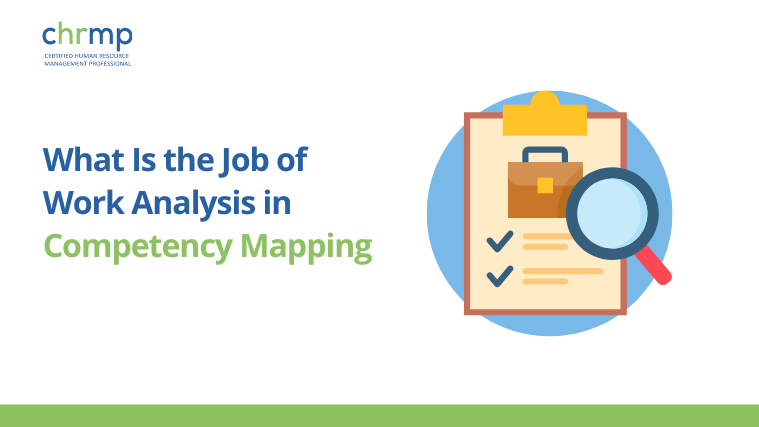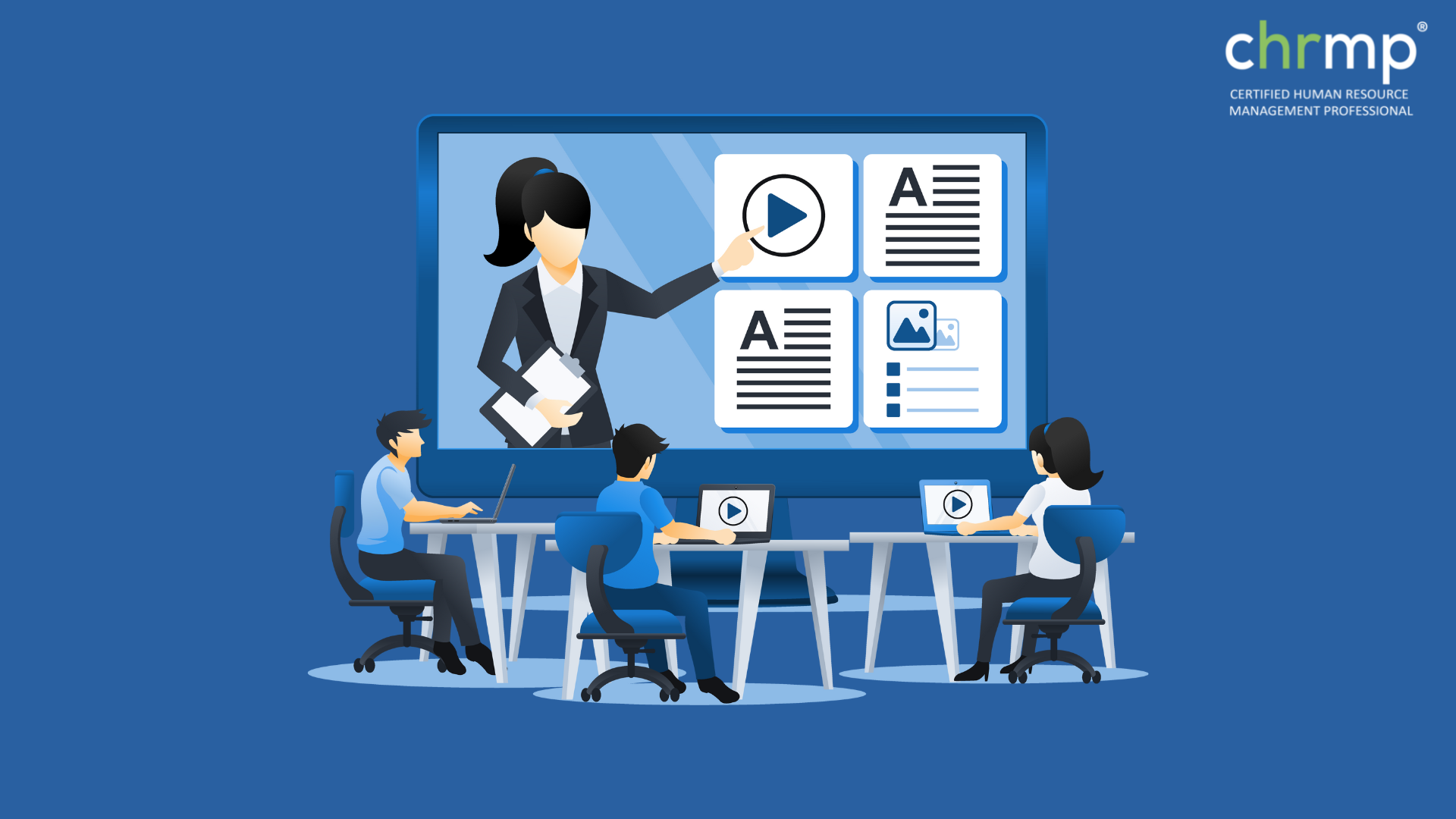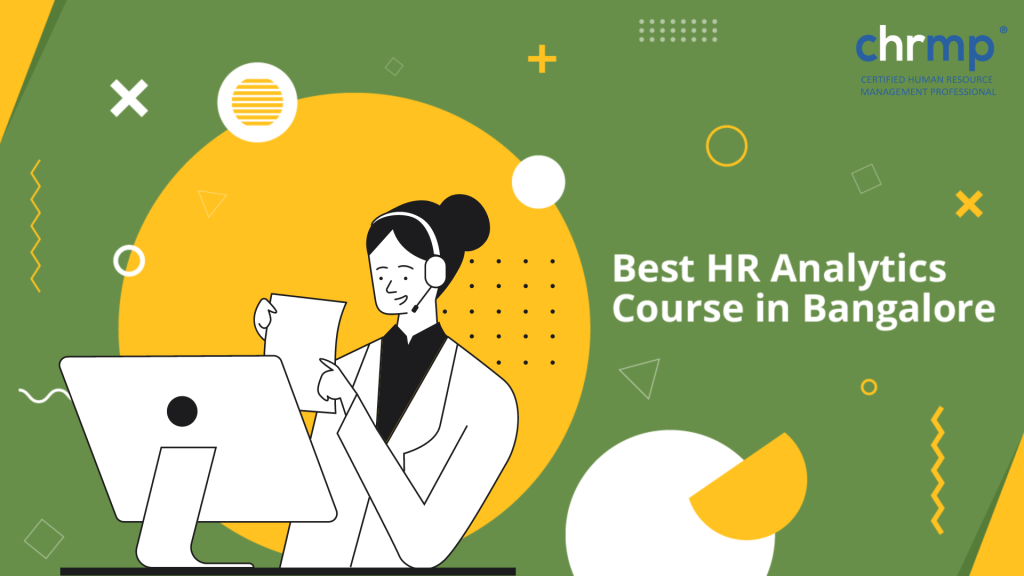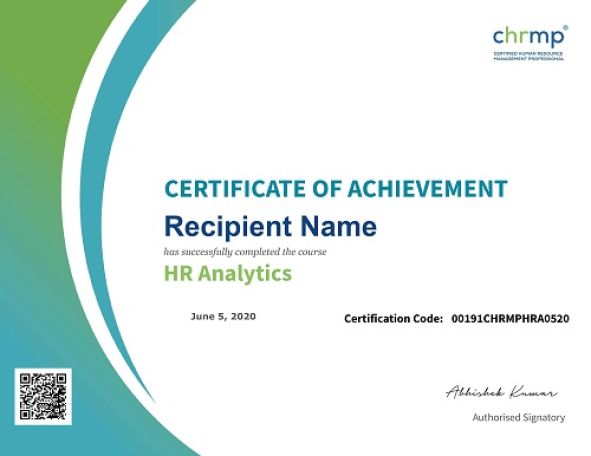

Every decision has two outcomes: it solves the problem or doesn’t. Unfortunately, HR leaders cannot enjoy the luxury of taking chances and making mistakes, as it can have a massive impact on the company.
It’s important to recognize that every decision has consequences, and in the context of HR leadership, those consequences can be significant.
HR leaders are responsible for managing personnel and employment issues within a company, which can have a significant impact on the overall performance and success of the organization. As such, it’s important that HR leaders make careful, well-informed decisions that are likely to solve the problem at hand.
This is why data-driven decisions are crucial for HR leaders, and HR Analytics is a critical tool that enables you to do just that. With more and more companies on the hunt for HR managers with specific HR Analytics skills, you need to step up and upgrade your skills to gain career success.
The CHRMP HR Analytics course in Bangalore is the perfect opportunity for you to grasp HR Analytics concepts and their application and help you scale your career.
This blog will provide a comprehensive guide to the CHRMP HR Analytics course in Bangalore, its key features, examinations, and other essential details.
Let’s get started.
An HR Analytics course will guide you through all the aspects of HR Analytics (also called people analytics), which is the collection of talent data and its application in improving critical business outcomes.
Through the course, you will learn how to develop data-driven insights and make informed decisions in improving business aspects.
By pursuing an HR analytics course in Bangalore, you’ll also have the opportunity to learn from experienced professionals and gain the skills and knowledge you need to succeed in this exciting and in-demand field.
The city’s vibrant job market and numerous leading organizations and start-ups make it an ideal location to build your dream career in HR analytics.
Bangalore is known for its quality of education and the numerous job opportunities available. The city is also famous for leading organisations and emerging start-ups, so pursuing an HR analytics course in Bangalore is a sure shot at building your dream career.

CHRMP (Certified Human Resource Management Professional) offers the best HR Analytics course in Bangalore. Through CHRMP HR Analytics, you can learn about the state-of-the-art analytics techniques applied to drive important HR initiatives like talent acquisition, building leadership, performance evaluation, talent development, hiring and promotion, job design, compensation, and collaboration.
Through the CHRMP HR Analytics course in Bangalore, you get the benefits of a world-class HR Analytics training program and gain the right degree of theoretical knowledge and practical implementation of key HR Analytics concepts.
CHRMP offers a comprehensive HR Analytics course in Bangalore. CHRMP HR Analytics is a certification course program with a broad spectrum of concepts related to HR Analytics.
It focuses on developing skills to use people Analytics and its tools & techniques to help organisations drive talent investment to achieve business objectives.

The CHRMP HR Analytics course in Bangalore is a globally recognised HR Analytics course that’s been validated by world-class testing standards to ensure you have the best learning experience.
CHRMP HR Analytics will help you gain a competitive edge and stay a step ahead of your peers by helping you develop a well-rounded knowledge of HR Analytics and its application.
The CHRMP HR Analytics course in Bangalore addresses a significant challenge that HR professionals face, i.e., the growing demand of the HR industry to constantly adapt and upgrade existing skills.
Through the CHRMP HR Analytics course, you will:
The CHRMP HR Analytics course in Bangalore is for you if you’re:
The CHRMP HR Analytics course in Bangalore has an array of learning outcomes that are in high demand.
Through the HR Analytics course by CHRMP, you will learn to:
The CHRMP HR Analytics course in Bangalore is delivered in partnership with Mercer Mettl.
Once you’re done with the training session, an evaluation consisting of 60 multiple-choice questions will be held.
Exam Duration: 90 minutes
The questions will include a blend of conceptual and practical case study questions.
Once you successfully pass the examination, you will receive a digital certificate and a Digital Badge through Accredible, verified and secured with Blockchain technology.

CHRMP also offers its HR Analytics course in Bangalore online, so distance and location won’t be a constraint for you.
Through the online CHRMP HR Analytics course, you can learn from the comfort of your home and sit for the exam in your city.
Alternatively, you can attend training sessions at one of our select locations near you to avail classroom training and the certification exam.
HR managers need easy access to data and insights for efficient decision-making.
With the help of HR Analytics, you can easily access trends in the workforce, employee performance, etc., and make timely decisions to help your company succeed.
There are several uses of HR Analytics in today’s industrial world that will help your company transform your data into valuable insights and use them to stay ahead of others.
Here are some of the most common projects in companies where HR Analytics comes in handy:
Improving employee engagement is vital to workforce management as it helps boost productivity levels and employee morale throughout the organisation.
However, identifying the factors that affect employee engagement is the main challenge, and here’s where HR Analytics comes into play.
With the help of HR Analytics, you can gain valuable insights into measurable factors that affect employee engagement, like performance, compensations and benefits, etc., enabling you to improve the employee engagement levels in your company.
Your company’s success is highly dependent on the skills of your employees.
Rapid technological evolution and job requirements have created a great demand for developing new skills in employees to keep up with the pace.
This problem can be solved with a learning module that assists in defining individual learning plans based on employee competency, career matrix identifications, or organisational goals.
Once you know what capabilities your organisation requires, you can compare them to the qualifications you currently have in place to see if there are any gaps.
HR leaders need to be well-versed in the factors contributing to a successful hire and implement that knowledge to improve the company’s recruitment and selection process.

HR analytics can help you improve the quality of your hires by ensuring they have the appropriate skill set for the job and even tracking turnover for new hires to ensure the right people are supported with the proper onboarding processes.
Recruiting and training new employees costs the company a lot of money and time. Thus, it’s essential to keep employee turnover rates in control.
Looking into employee turnover trends in your company will help you predict the future and make better decisions to improve your staff retention.
Relevant data may come from your HRMS system, and information gathered from employee engagement levels, employee satisfaction indexes, and exit interviews.
HR analytics is an emerging field that is constantly evolving. Here are some future trends in HR analytics that are likely to shape the industry:
Artificial intelligence (AI) and machine learning (ML) are increasingly being used in HR analytics to automate repetitive tasks and provide insights into employee behavior, retention, and performance.
AI and ML can also help organizations make data-driven decisions and predict future trends.
Predictive analytics is becoming increasingly popular in HR analytics.
It involves using data, statistical algorithms, and machine learning techniques to identify the likelihood of future outcomes based on historical data.
Predictive analytics can help organizations anticipate future workforce needs, identify high-potential employees, and develop effective retention strategies.
The amount of data generated by HR systems and applications is increasing exponentially, and big data analytics is becoming essential for organizations to gain insights into employee behavior, performance, and engagement.
Big data can help organizations make data-driven decisions and identify patterns and trends that were previously hidden.
Social network analysis (SNA) is a powerful tool that can be used in HR analytics to understand the relationships between employees, teams, and departments.
SNA can help organizations identify key influencers, improve collaboration and communication, and identify potential areas of conflict.
Employee experience (EX) analytics is a growing trend in HR analytics.
It involves collecting data on employee satisfaction, engagement, and well-being, and using that data to improve the overall employee experience.
EX analytics can help organizations identify areas for improvement, develop effective employee engagement strategies, and improve retention rates.
As the use of HR analytics becomes more widespread, there is a growing concern about ethics and privacy.
Organizations must ensure that they are using data in an ethical and transparent manner and that employee privacy is protected.
With the increasing demand for HR analytics professionals, there is a growing need for HR professionals to acquire the necessary skills and knowledge to succeed in this field.
HR analytics courses, certifications, and training programs are becoming more common to help HR professionals develop the necessary skills.
Overall, HR analytics is becoming an essential tool for organizations to make data-driven decisions, improve employee engagement and retention, and gain a competitive advantage in the market. As the field continues to evolve, organizations must stay up-to-date with the latest trends and technologies to remain competitive.
1.When will I sit for the examination?
The certification exam consists of several assessment tests conducted throughout the training. The final certification exam will be held after your course is complete. You can sit for the final exam on any date within a month from when your training ends.
2.Who are the trainers?
Our trainers are top experts and have worked on setting up complex processes like Learning & Development, Performance Management, Employee Relations and Recruitment & Selection for leading companies.
3.When will I get the certificate?
Once you successfully complete your exam, you will get your certificate within seven to ten days.
4.Will I receive placement support?
We do provide assistance with building your resume. We also provide placement support by sharing interview opportunities as and when they are available. You can also benefit from our active Whatsapp groups, where our alums share job openings frequently. Several of our participants have been able to place themselves using these social media groups.
5.Is there a cancellation policy?
Unfortunately, we do not entertain refunds once the amount has been paid.
© 2007-2025 CHRMP| All Rights Reserved | Powered by Ripples Learning & Research Private Limited
